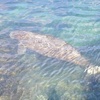
Dugong sighting in southern NSW!
The usually tropical loving dugong is more at home in warm Queensland waters - but Redmap volunteer Michael Standen spotted this one in southern NSW. See his sighting here!



The usually tropical loving dugong is more at home in warm Queensland waters - but Redmap volunteer Michael Standen spotted this one in southern NSW. See his sighting here!
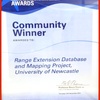
Redmap NSW has just won the Community Award at the Annual NSW Coastal Management Awards. Congratulations!
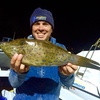
Redmap has received more than 1500 sightings of marine life around Australia that people deemed uncommon in their local seas. This edition of Redmap news reviews the citizen science including the Top 3 sightings per state. Also, read interviews with Redmap members around Australia and other marine news! Check out the newsletter here.
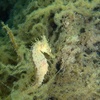
Ben Stewart loves to freedive in the pristine waters of Forster on the NSW mid-north coast. He’s been lucky enough to photograph a vast number of tropical vagrants that hitch a ride south each summer. And Redmap's lucky he logged his uncommon photos of butterflyfish, rockcod and wrasse on the Redmap app!
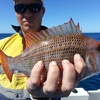
Australian fishers, divers and beachcombers have documented some 1500 sightings of marine life they considered uncommon in their local seas. Many of the Redmap sightings were species out of their usual home range (distribution); and others were valuable observations of rare or poorly-studied species that we'll track over time. And it looks like the scuba divers beat the fishers for uploading the most sightings on Redmap! Here's a snapshot of Redmap's citizen …
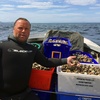
Commercial diver Bryan Denny has no regrets starting his career as a teenager when he'd skip school to fish with local abalone divers. Read about his life on the sea and the changes he's seen over the years.
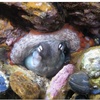
A recent article in The Conversation detailed how Redmap volunteers are helping scientists track movements in marine species around Australia's vast coastline. Read the article here.
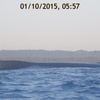
A Gold Coast marine biologist is harnessing the power of social media in a bid to turn everyone into a citizen scientist. Facebook page Humpbacks and High-Rises (HHR) may only have just over 1,000 followers, but almost every one of those followers is engaging in whale watching research and conservation. Read more at The Brisbane Times.
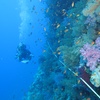
A new study by University of Tasmania researchers and international collaborators has found that a key element of future changes in the distribution of marine biodiversity resulting from ocean warming is not as closely related to local warming rates as previously assumed. Read more in the University of Tasmania News.
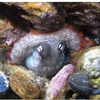
The world’s oceans are warming at an accelerated rate due to anthropogenic activities. Over 100 species have undertaken polewards range-shifts along the south-east coast of Australia with expected positive and negative impacts in the invaded southern communities. Read more about this hot topic by researcher Jorge E. Ramos and Redmap founder Gretta Pecl from the Institute for Marine and Antarctic Studies in the Ecological Society of Australia's Hot Topics …